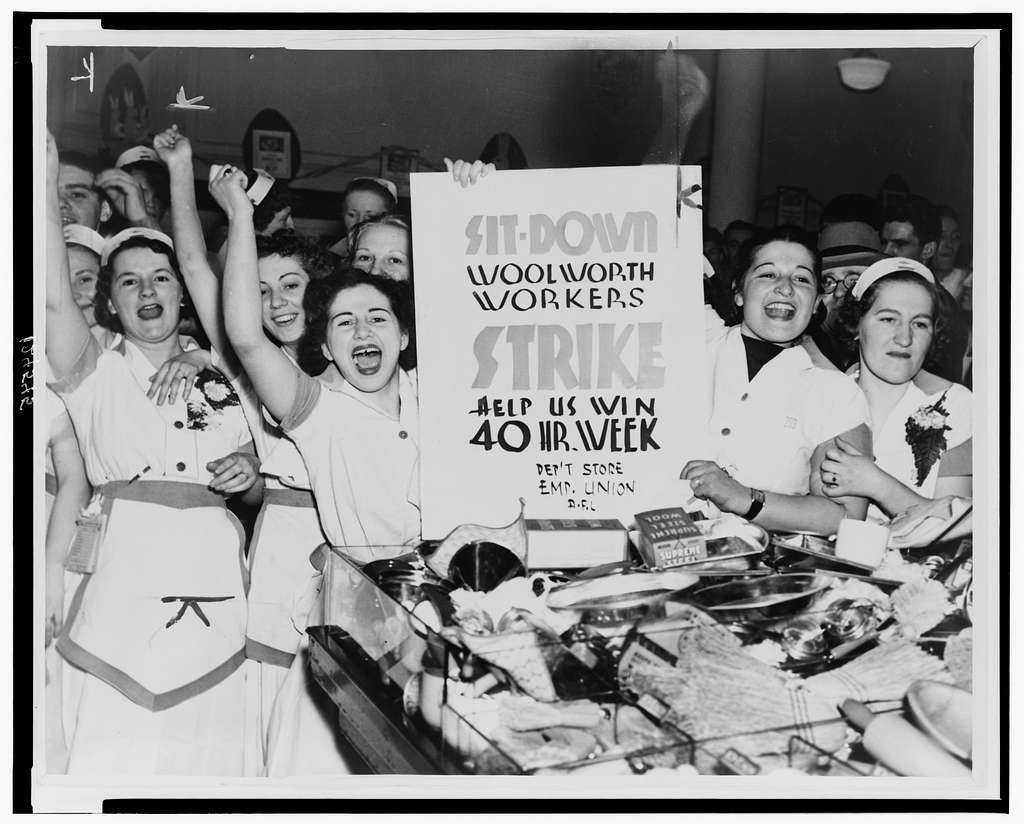
Gilbert Placeres is a student at Harvard Law School.
In today’s News & Commentary, Sarah Jaffe argues the 32-hour workweek has the potential to unite the working class, data shows large unions grew their membership in 2023, and Leticia Miranda argues fast-food is turning into higher-skilled work.
In In These Times, Sarah Jaffe writes about how the demand for a 32-hour workweek has the potential to unite the working class. She traces the history of demands for shorter working hours, from Philadelphia carpenters striking for 10-hour days in 1791, to workers being killed for demanding “eight hours for work, eight hours for rest, eight hours for what you will” at Haymarket Square in 1886, to workers eventually winning the 40-hour workweek but then largely abandoning demands to shorten it further. This included the 1950 “Treaty of Detroit” between UAW and GM, where “the union made a major decision not to contest so-called management rights,” and rather “restricted its struggles to the size of its slice of the proceeds of workers’ labor, rather than fighting to control the workplace itself.”
However, Jaffe argues the Covid crisis revived the issue of a shorter work week, as “essential” workers worked overtime while risking life and health. Workers forced to work 28 days straight at a Nabisco plant in Oregon went on strike, eventually winning concessions as well as state legislation restricting the use of forced overtime for bakery workers. The UAW included a demand for a 32-hour workweek in its recent negotiations with the Big Three, because too many workers do not have enough time to spend with family, friends and “just pursuing things that you love doing,” according to President Shawn Fain. “[The Covid crisis] really made people reflect on what’s important in life,” he argues. The issue raises workers’ relationship to management’s control over production as well as to technology and automation. Jaffe argues the 32-hour work week has the potential to unite the working class because it can cut across industries, profession, countries, and unionization status.
New data shows that large unions grew their ranks in 2023 amidst a banner year for strikes. Unions experiencing membership growth include the International Brotherhood of Teamsters, the International Longshore and Warehouse Union, and Unite Here, which all added thousands of members while having high-profile contract fights. However, the overall union membership rate dropped to a historic low of 10%, indicating union job growth is failing to keep up with non-union job growth.

Fast-food work may be turning into higher-skilled work, argues Leticia Miranda for Bloomberg Law. As adoption of new technologies, such as digital ordering kiosks and automated conveyor belts, continues, workers increasingly must use new software and food production techniques. Chains are partly meeting this increased need by hiring field technicians across a particular area or region. They are also hiring guest managers, who greet customers when they enter and assist them with any issues using these news technologies, requiring more advanced customer service skills than traditional fast-food work. Some chains are offering increased benefits like 401K matching and quicker vacation accrual to retain these skilled workers.






Daily News & Commentary
Start your day with our roundup of the latest labor developments. See all
January 8
Pittsburg Post-Gazette announces closure in response to labor dispute, Texas AFT sues the state on First Amendment grounds, Baltimore approves its first project labor agreement, and the Board formally regains a quorum.
January 7
Wilcox requests en banc review at DC Circuit; 9th Circuit rules that ministry can consider sexual orientation in hiring decisions
January 5
Minor league hockey players strike and win new deal; Hochul endorses no tax on tips; Trump administration drops appeal concerning layoffs.
December 22
Worker-friendly legislation enacted in New York; UW Professor wins free speech case; Trucking company ordered to pay $23 million to Teamsters.
December 21
Argentine unions march against labor law reform; WNBA players vote to authorize a strike; and the NLRB prepares to clear its backlog.
December 19
Labor law professors file an amici curiae and the NLRB regains quorum.